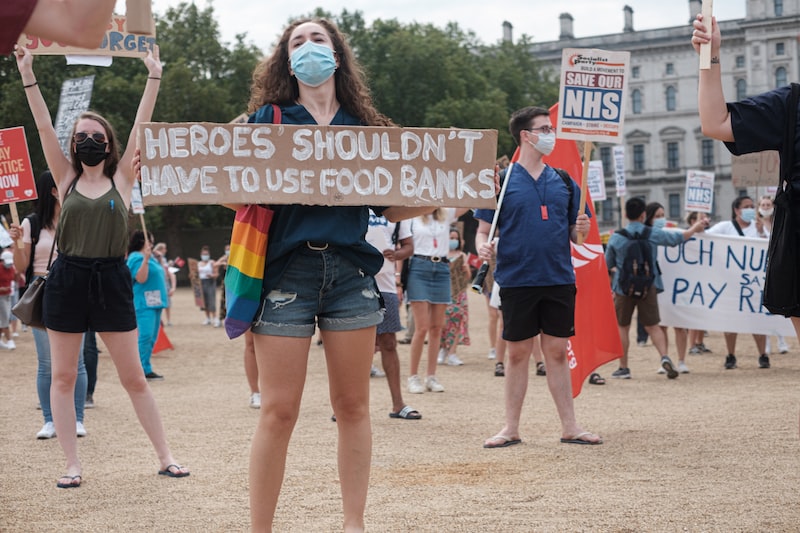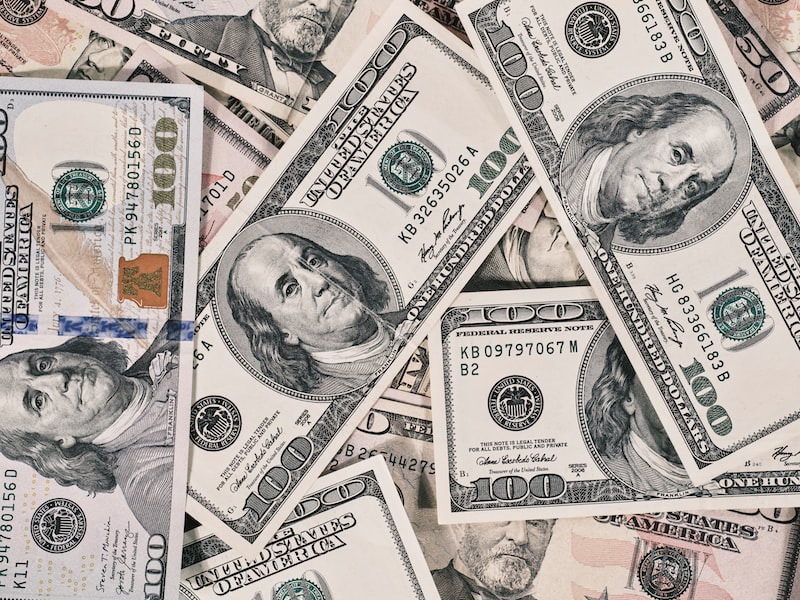Table of Contents
The debate on raising the minimum wage has been a hot topic of discussion in recent years. Advocates argue that increasing the minimum wage can help improve the lives of low-income workers and reduce income inequality, while opponents express concerns about potential negative effects on businesses, job loss, and overall economic impact. So, let’s take an overview of this ongoing debate.
Proponents of raising the minimum wage highlight its potential benefits. They argue that it would provide a higher standard of living for low-wage workers, allowing them to meet their basic needs and afford essential goods and services. By boosting workers’ purchasing power, it is believed that consumer spending would increase, stimulating economic growth.
Advocates also contend that raising the minimum wage can address income inequality. They argue that a higher minimum wage would help narrow the gap between low-income earners and high-wage earners, promoting a more equitable distribution of wealth. This, in turn, could lead to social stability and a stronger middle class.
On the other hand, opponents express concerns about the potential drawbacks of raising the minimum wage. One common argument is that it could lead to job losses, particularly in sectors that heavily rely on low-wage labor. Businesses may struggle to absorb the increased labor costs and may be forced to reduce their workforce or cut back on hiring new employees.
Critics also warn about the potential impact on small businesses. Small businesses often operate on thin profit margins, and a significant increase in labor costs could strain their financial viability. Some argue that higher minimum wages may discourage entrepreneurship and create barriers for entry into the market.
Economists and policymakers continue to debate the precise effects of raising the minimum wage. The empirical evidence from different studies provides mixed results, contributing to the complexity of the issue. Ultimately, the decision to raise the minimum wage requires careful consideration of both the benefits and potential consequences, ensuring a balance between supporting workers’ well-being and maintaining a thriving business environment.
the debate on raising the minimum wage is multifaceted and involves various stakeholders. While proponents argue for improved living standards and reduced income inequality, opponents express concerns about potential job losses and negative economic impact. The ongoing discussion underscores the importance of finding a balanced approach that considers both the well-being of workers and the overall health of the economy.
Economic Equality or Job Loss? The Intense Debate Surrounding Minimum Wage Increase
Do you ever wonder about the impact of a minimum wage increase on our economy? It’s a topic that sparks intense debates, raising questions about economic equality and potential job loss. Let’s delve into this contentious issue and explore its various dimensions.
Advocates for a higher minimum wage argue that it promotes economic equality by providing workers with a livable income. They believe that every individual deserves fair compensation for their labor, allowing them to meet basic needs and improve their quality of life. A higher minimum wage can lift workers out of poverty, reduce income disparities, and stimulate consumer spending, ultimately boosting the economy.
On the other side of the coin, opponents express concerns about the potential negative consequences of a minimum wage increase, particularly in relation to job loss. They argue that businesses, especially small enterprises, may struggle to absorb higher labor costs. As a result, they might be forced to reduce employee hours, lay off workers, or even close their doors altogether. Critics fear that these unintended consequences could undermine job creation and hinder economic growth.
The debate intensifies as each side presents compelling arguments backed by research and real-world examples. Supporters point to studies suggesting that modest increases in the minimum wage have minimal to no adverse effects on employment levels. They highlight success stories where cities and states implemented higher minimum wages without causing widespread job losses. These proponents emphasize that a well-designed policy can strike a balance between economic fairness and job preservation.

Opponents, however, caution against a one-size-fits-all approach and stress the need for flexibility. They argue that regional variations in living costs and economic conditions must be considered when setting minimum wage levels. By tailoring the policy to local contexts, they believe we can mitigate the risks of job loss while still addressing income inequality.
the debate surrounding a minimum wage increase revolves around the quest for economic equality versus the potential threat of job loss. Achieving a balance between these two objectives is challenging, as evidenced by the passionate arguments from both sides. As policymakers and society grapple with this issue, finding nuanced solutions that consider various factors becomes crucial. Ultimately, our goal should be to strive for an economy that provides fair wages while also fostering sustainable growth and opportunity for all.
Minimum Wage: A Burning Issue in the Fight Against Income Inequality
The minimum wage has become a burning issue in the fight against income inequality. It is a topic that sparks heated debates and intense discussions among policymakers, economists, and the general public. So, what exactly is the minimum wage and why does it hold such significance today?
At its core, the minimum wage is the legal minimum amount that an employer must pay to its employees for their work. It is intended to ensure that workers receive a fair and livable wage, providing them with a basic standard of living. However, the level at which the minimum wage is set can have far-reaching consequences on both individuals and the wider economy.
One of the main reasons why the minimum wage is seen as crucial in addressing income inequality is its potential to uplift low-income workers. By setting a higher minimum wage, those at the bottom rungs of the economic ladder can earn more, thereby reducing income disparities. Advocates argue that this can lead to improved living standards for individuals and their families, allowing them to meet their basic needs without struggling to make ends meet.
Additionally, proponents of raising the minimum wage argue that it can stimulate economic growth. When low-wage workers earn more, they are likely to spend a larger portion of their income on goods and services, thus boosting consumer demand. This increased spending can, in turn, drive business growth and create more job opportunities. It’s like throwing a stone into a pond, causing ripples that expand and benefit the overall economy.
However, critics of increasing the minimum wage raise concerns about its potential negative effects. They argue that higher labor costs can lead to reduced employment opportunities, as businesses may struggle to afford the increased wages. Small businesses, in particular, may find it challenging to adapt to a higher minimum wage, potentially leading to layoffs or even business closures.
Finding the right balance between a fair minimum wage and its potential impact on employment remains a complex challenge. Policymakers must consider various factors, such as regional cost of living, inflation, and overall economic conditions when determining an appropriate minimum wage level.
the minimum wage is undeniably a burning issue in the fight against income inequality. It holds the potential to uplift low-wage workers and stimulate economic growth, but it also presents challenges for businesses and employment. As society strives for a more equitable distribution of wealth, finding the right balance in setting the minimum wage becomes crucial in addressing income disparities and promoting a thriving economy.
Uncharted Territory: Exploring the Potential Effects of Raising the Minimum Wage

Raising the minimum wage has long been a topic of debate and discussion. It’s an uncharted territory that holds both promises and concerns for various stakeholders. Let’s dive into this intriguing subject and explore the potential effects of increasing the minimum wage.
One of the most significant impacts of raising the minimum wage is its potential to improve the standard of living for low-wage workers. By increasing their income, these individuals can afford better housing, healthcare, and education opportunities for themselves and their families. This financial boost could alleviate poverty and reduce the reliance on government support programs, creating a more equitable society.
Moreover, raising the minimum wage can stimulate economic growth. When low-income workers have more money in their pockets, they tend to spend it on essential goods and services. This increased consumer spending can drive demand, leading to job creation and business expansion. In turn, this positive cycle fuels economic activity and stimulates local economies.

Opponents of raising the minimum wage often argue that it could lead to job losses. They claim that businesses, especially small enterprises, may struggle to absorb the higher labor costs and be forced to reduce their workforce. While it’s true that some jobs may be affected, studies suggest that the overall impact on employment is modest. Many businesses adapt by optimizing productivity, adjusting prices, or reallocating resources.

Another potential effect of raising the minimum wage is an improvement in worker productivity. When employees earn a livable wage, they are more likely to be motivated, satisfied, and loyal to their employers. This increased job satisfaction can result in reduced turnover rates, lower recruitment and training costs, and a more skilled and experienced workforce. Ultimately, it can lead to greater efficiency and profitability for businesses.
raising the minimum wage is an uncharted territory with various potential effects. It can uplift the living standards of low-wage workers, stimulate economic growth, and enhance worker productivity. While concerns about job losses exist, evidence suggests that the overall impact on employment is limited. As we navigate this unexplored terrain, it’s crucial to strike a balance that considers the needs of workers, businesses, and the economy as a whole.
From Penny-Pinching to Prosperity: Evaluating the Benefits and Drawbacks of a Higher Minimum Wage
Introduction:
Picture this: working long hours, struggling to make ends meet, and constantly worrying about how to cover basic expenses. This is the reality for many low-wage workers across the country. The debate surrounding the minimum wage has gained momentum in recent years, with proponents advocating for an increase to alleviate financial hardships. In this article, we’ll delve into the benefits and drawbacks of a higher minimum wage, exploring how it can impact individuals, businesses, and the overall economy.
Benefits of a Higher Minimum Wage:
- Improved Standard of Living: A higher minimum wage empowers workers by providing them with a more livable income. It raises their purchasing power, enabling them to afford essential goods and services, and potentially lifting them out of poverty.
- Reduced Income Inequality: Increasing the minimum wage narrows the gap between the lowest-earning workers and those at higher income levels. This helps address income inequality and fosters a more equitable society.
- Enhanced Worker Productivity and Motivation: When employees earn a fair wage, they are more likely to feel valued and motivated in their roles. This can lead to increased productivity, lower turnover rates, and improved customer service within businesses.
- Stimulated Local Economies: Workers earning a higher minimum wage tend to spend a larger portion of their income on immediate needs, injecting money back into local economies. This increased consumer spending can fuel economic growth and create new job opportunities.
Drawbacks of a Higher Minimum Wage:
- Potential Job Losses: Critics argue that higher labor costs resulting from an increased minimum wage could prompt employers to reduce their workforce or cut back on hiring. Small businesses, in particular, may face challenges in absorbing the added expense.
- Inflationary Pressure: Some economists contend that raising the minimum wage can contribute to inflation as businesses pass on increased labor costs to consumers through higher prices. This can potentially erode the purchasing power of all consumers, negating some of the benefits.
- Disincentive for Skill Development: A significantly higher minimum wage may discourage individuals from pursuing higher education or upgrading their skills. If low-skill jobs become more lucrative, there may be a reduced incentive to seek career advancement or acquire specialized training.
Conclusion:
As we explore the implications of a higher minimum wage, it becomes evident that the topic is multifaceted and complex. While it has the potential to alleviate financial hardships and foster economic growth, there are also concerns about unintended consequences such as job losses and inflation. Striking the right balance between worker well-being and economic sustainability requires careful consideration and ongoing evaluation. Only by thoroughly analyzing the benefits and drawbacks can we shape policies that work towards a future where prosperity is within reach for all.


